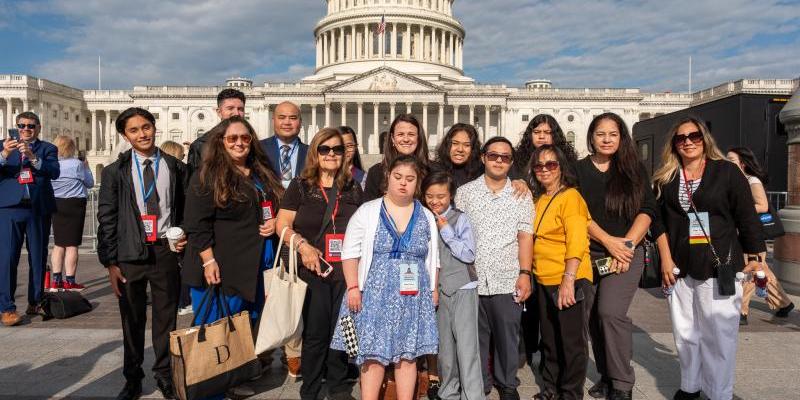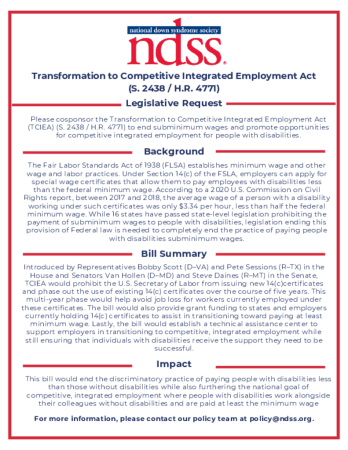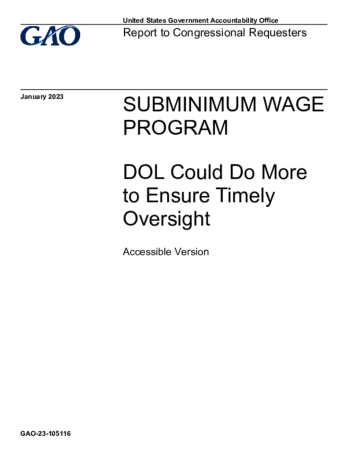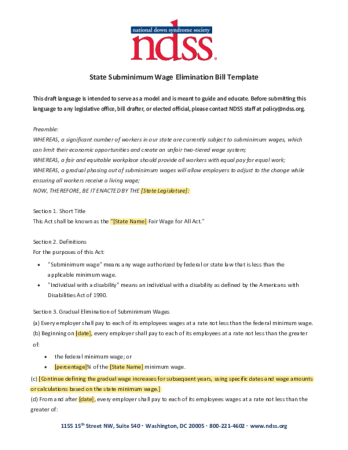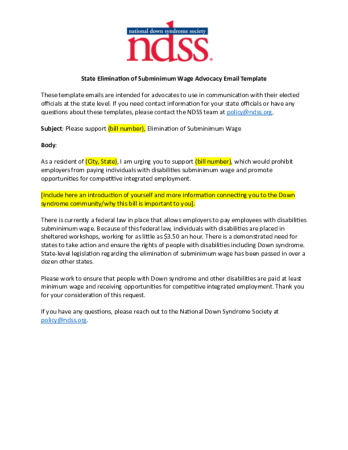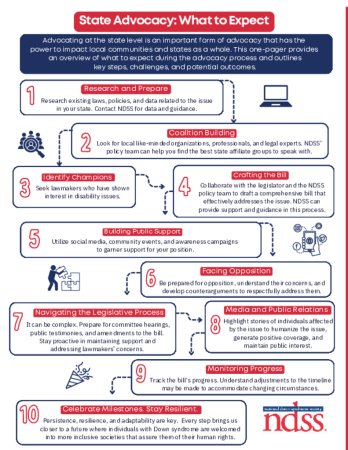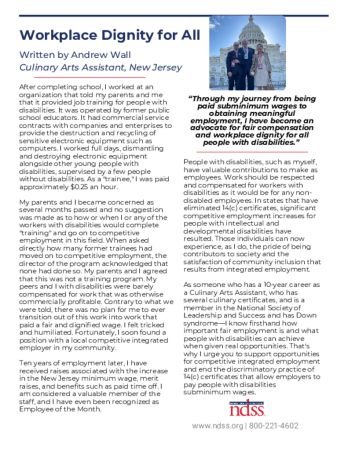Under Section 14(c) of the Fair Labor and Standards Act of 1938, employers are permitted to pay employees with disabilities less than the federal minimum wage. The National Down Syndrome Society (NDSS) believes that all individuals with Down syndrome deserve to be paid at least minimum wage and to receive equal opportunities for competitive integrated employment. In line with this belief, NDSS champions bills that support competitive integrated employment and end subminimum wage at both the state and federal level. The toolkit below is intended to support community advocates who wish to get involved with the elimination of subminimum wage advocacy efforts.
For more information, please contact our team at policy@ndss.org.
To learn more about NDSS grassroots advocacy initiatives, please visit our DS-Ambassador page here.
To learn more about the NDSS Employment Program and resources visit our Employment Program page here.
Federal Subminimum Wage Resources
At the federal level, NDSS champions the Transformation to Competitive Employment Act. NDSS supports this legislation because it would end the discriminatory practice of paying people with disabilities subminimum wage by prohibiting the issuance of new 14(c) certificates as well as phasing out current certificates. This bill would also provide grant funding and technical assistance to states and employers currently holding 14(c) certificates to assist in transitioning toward paying at least minimum wage. You can view the DOL statistics on who holds a 14(c) certificate here.
For more information on the federal bill, please contact policy@ndss.org.
State Subminimum Wage Resources
Subminimum wage laws are essential at the state level because they create a uniform and consistent framework for ensuring individuals with disabilities are paid at least minimum wage and receive opportunities for competitive employment. While federal laws like the Transformation to Competitive Employment Act would federally eliminate subminimum wages, state-level laws have proven to be a quicker and more effective way to address the elimination of subminimum wage.
By focusing on state legislatures, advocates can work closely with local policymakers, community groups, and employers to raise awareness and drive change effectively.
For more information on the state initiatives, please contact policy@ndss.org.
Advocates can use the resources below to advocate for the elimination of subminimum wage at the state level.





